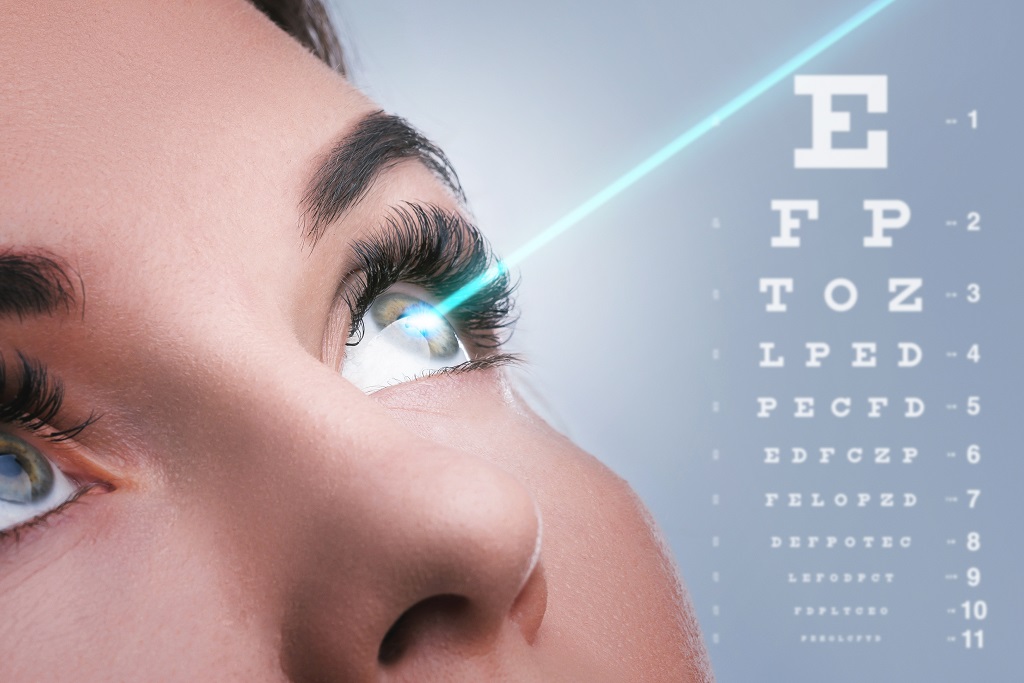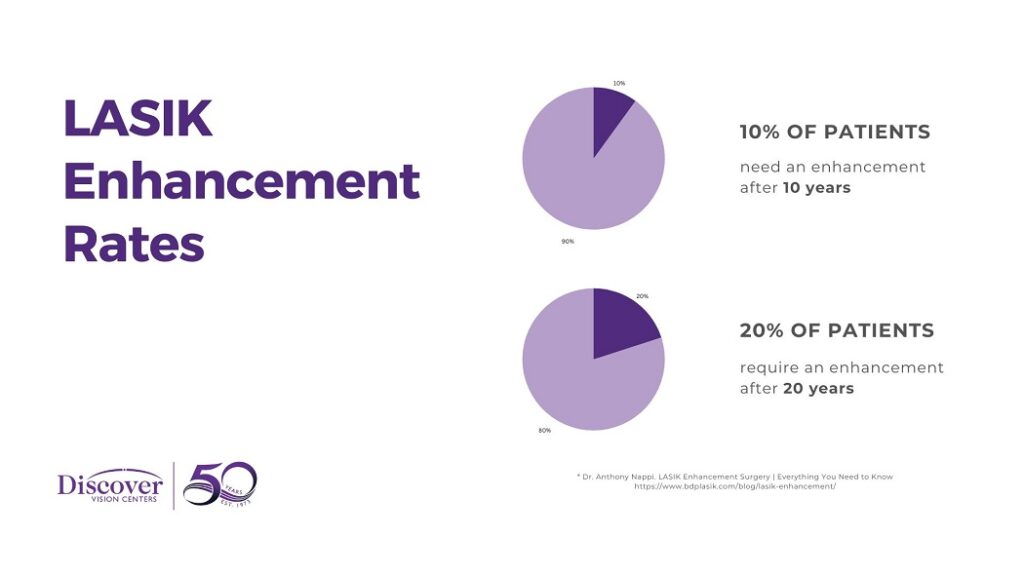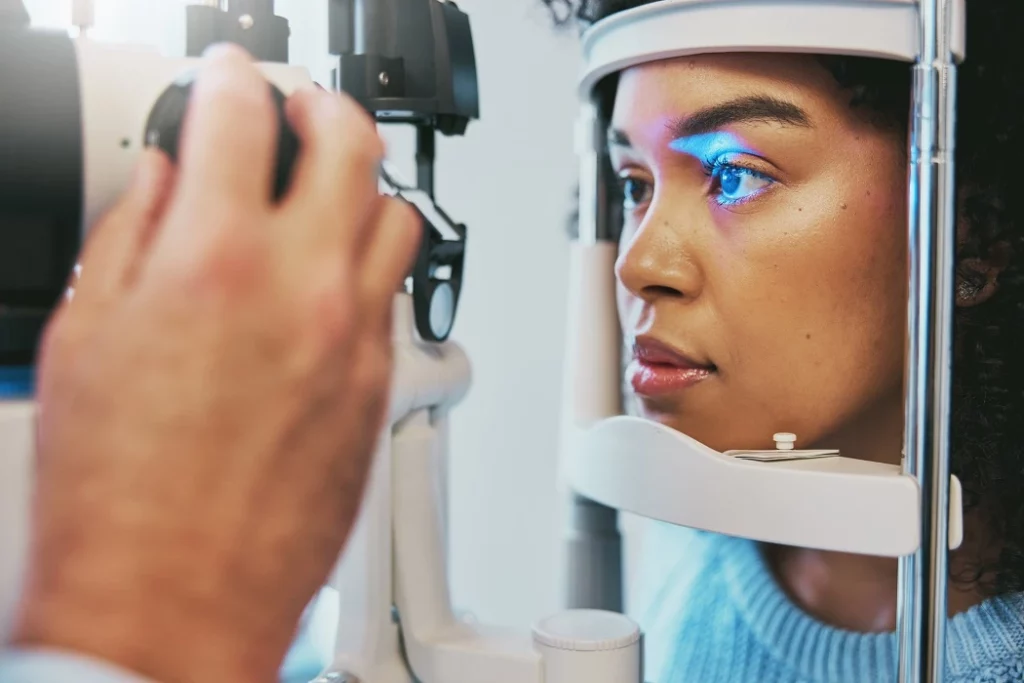
Updated: November 30, 2023

LASIK is a refractive eye surgery that can correct nearsightedness, farsightedness, and astigmatism. Often considered a permanent solution to the alternative of glasses and contact lenses, LASIK is not entirely immune to changes in vision over time. LASIK eye surgery reshapes the cornea to improve vision, and in most cases, the results are long-lasting. However, factors like age, eye health, and genetics can lead to gradual vision changes, known as presbyopia or cataracts, later in life. Additionally, LASIK cannot prevent age-related eye conditions. While LASIK provides lasting benefits, it’s important to have regular eye exams to monitor your eye health.
Table of Contents
LASIK is used to correct nearsightedness (myopia) and other refractive errors like hyperopia (farsightedness), and astigmatism. Let’s break down how LASIK works, who it can help, the procedure, and what to expect from the results.
How LASIK Works:
1. The Cornea: LASIK primarily focuses on fixing vision problems by reshaping the cornea, which is the clear front part of your eye. Imagine it like the windshield of your eye.
2. Refractive Errors: LASIK can address common vision issues like:
3. Eye Conditions: While LASIK may be an option for some, it cannot prevent age-related eye conditions or other vision problems, such as:
4. The Procedure: During LASIK, a specialized laser is used to create a thin flap on the cornea’s surface. This flap is lifted, and another laser reshapes the underlying corneal tissue to correct your vision problem. Then, the flap is carefully placed back.
5. Quick and Painless: LASIK is usually done in about 5-10 minutes per eye, and it’s nearly painless. You might feel some pressure and a bit of discomfort, but it’s brief.
6. Fast Recovery: Most people notice improved vision within a day or two, and full recovery often happens within a few weeks.
7. Results: LASIK has an impressive success rate. About 96% of patients report satisfaction with their vision after LASIK, and over 95% of eyes achieve 20/20 vision or better!
In a nutshell, LASIK is like giving your eye’s windshield a little makeover, making it easier for you to see clearly without glasses or contacts. It’s a popular and effective way to correct various vision problems and can be life-changing for many.

LASIK delivers rapid and remarkable changes to your vision, offering immediate relief from the hassles of glasses and contact lenses. Short-term results of LASIK include:
Beyond the initial excitement of clear vision, LASIK offers enduring benefits that stand the test of time, providing lasting freedom from corrective eyewear.
Long-term results of LASIK:
In summary, LASIK typically provides immediate vision improvement with minimal short-term discomfort. Long-term results are generally stable, but age-related changes may require additional treatment options to correct vision in the future. Regular eye check-ups are important to maintain eye health over time.
Several factors can affect vision after LASIK, and it’s essential to understand these factors to manage expectations and ensure the best possible outcome. Here are key factors that can influence post-LASIK vision:
It’s crucial to discuss these factors with your LASIK surgeon during the consultation to determine whether LASIK is suitable for your specific circumstances. In some cases, a refractive error like myopia and hyperopia can return over time. In this case, a repeat procedure, known as an enhancement, may help to improve vision. Additionally, regular follow-up appointments and maintaining good eye care practices can help ensure the best possible long-term results after LASIK.
LASIK provides long-lasting vision correction, but there are other factors that can interfere with vision over time. The procedure reshapes the cornea to correct common vision issues like nearsightedness, farsightedness, and astigmatism, and the results are typically stable for many years. However, factors such as age-related changes in the eye, the development of presbyopia (difficulty focusing on close objects as you get older), or other eye conditions can impact vision over time.
Can LASIK wear off? No, LASIK doesn’t “wear off” in the traditional sense. However, natural eye changes can lead to a gradual decline in vision quality, necessitating additional vision correction or reading glasses as you age. Regular eye check-ups are essential to monitor any changes, ensuring that you maintain clear and comfortable vision throughout your life.

Some individuals may require LASIK enhancement surgery for various reasons, even after undergoing the initial LASIK surgery.
Common factors for a LASIK enhancement:
It’s crucial for individuals considering LASIK to have realistic expectations and understand that while LASIK offers long-term vision improvement, there is a possibility of needing an enhancement procedure in the future. Your eye surgeon will assess your specific situation and recommend the most suitable course of action to achieve and maintain optimal visual outcomes.
Undergoing LASIK typically doesn’t eliminate future vision correction options. However, it can influence the suitability of other laser vision correction procedures. LASIK and PRK are enhancement options. RLE (Refractive Lens Exchange) and ICL (Implantable Collamer Lens) may be a better option for some patients depending on their desires.
Discuss your unique situation with an experienced eye surgeon. Request a free LASIK consultation at Discover Vision to determine the best course of action for your future vision correction needs.

Caring for your eyes after LASIK surgery is essential to ensure a smooth and successful recovery. Here are some helpful tips:
Remember that LASIK recovery varies from person to person, so it’s crucial to consult your surgeon for personalized advice and recommendations. Proper eye care during the recovery period can help ensure the best possible results and long-term vision improvement.
Ready to transform your vision and discover a world of clarity? Take the first step towards visual freedom by exploring your LASIK options with Discover Vision. Whether you’re curious about your LASIK candidacy, looking for answers on how long LASIK eye surgery lasts, or seeking a free consultation, we’re here to help.
Take Our Online Self-Evaluation Test: Begin your journey by assessing your potential LASIK candidacy with our quick and convenient online self-evaluation test. It’s a simple and informative way to get started on the path to better vision.
Request a Free LASIK Consultation: For a more in-depth understanding of your LASIK options, schedule a free consultation with our experienced LASIK specialists. You can choose between a virtual consultation from the comfort of your home or an in-person visit to a Discover Vision location near you.
Don’t wait any longer to experience life without the hassle of glasses or contact lenses. Take the self-evaluation test or request your free LASIK consultation now. Your journey to clearer vision starts here!